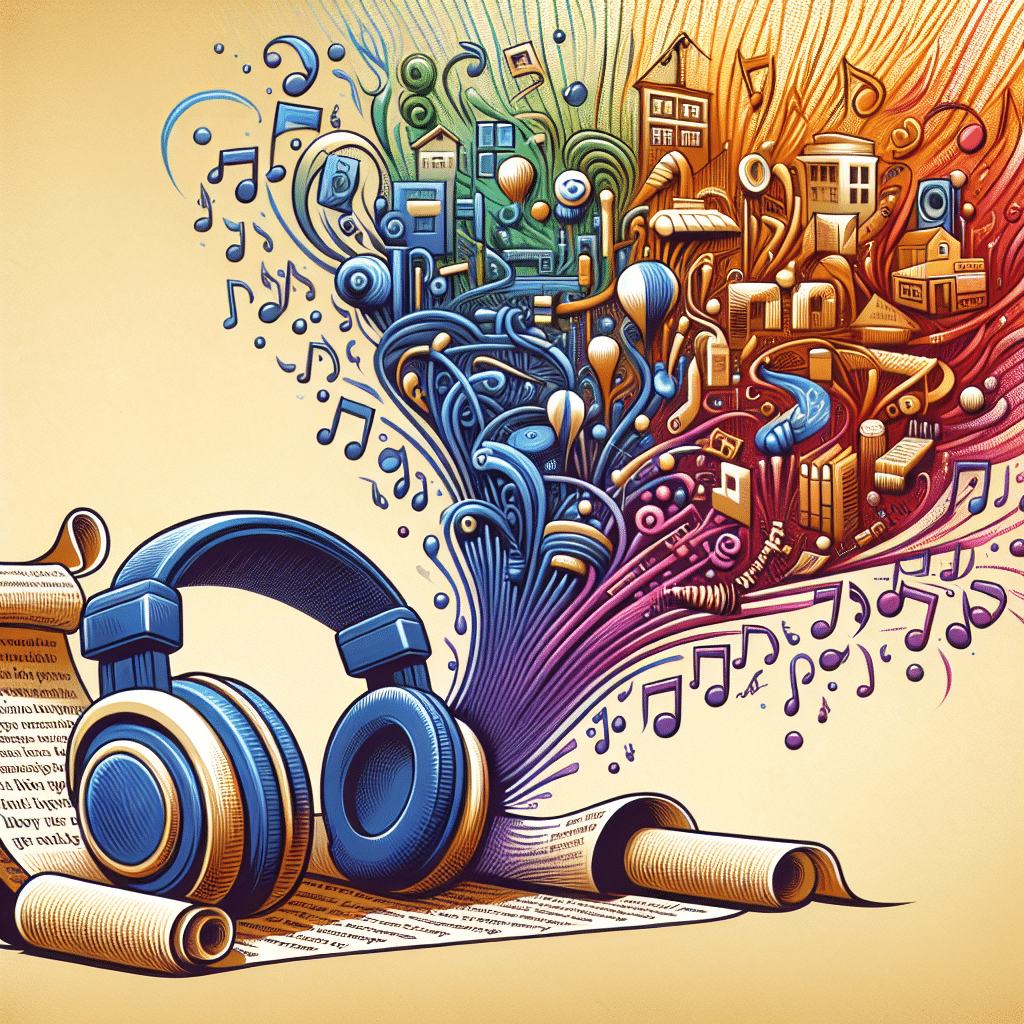Beyond the Beat: The Cultural Significance of Hip Hop Lyrics in Today's Society

Hip hop has transcended its origins and become a dynamic cultural movement that plays a crucial role in modern society. While the music itself—rhythm, beats, and flows—often steals the spotlight, the lyrics are equally significant, offering insights into the human experience, societal struggles, and cultural narratives. This article explores the cultural significance of hip hop lyrics today, delving into various aspects such as social commentary, identity formation, and the power of storytelling.
The Historical Context of Hip Hop Lyrics
Hip hop music originated in the Bronx, New York City, during the late 1970s, primarily as an outlet for African American and Latino youth. It was born from the socio-economic struggles these communities faced, including poverty, discrimination, and violence. Early lyricists used their verses to voice their frustrations and experiences, challenging the dominant narratives of society. Classic tracks by pioneers like Grandmaster Flash and The Furious Five laid the groundwork for hip hop's role as a catalyst for change.
At its core, hip hop is a platform for social commentary. Lyrics often address pressing social issues, such as racism, inequality, police brutality, and systemic injustice. Artists like Kendrick Lamar, J. Cole, and Public Enemy have used their lyrics to challenge the status quo and inspire social activism.
See Also: Top Tracks: The New Rap Releases Dominating the Charts This Month
Top Tracks: The New Rap Releases Dominating the Charts This MonthFor instance, Kendrick Lamar's album "To Pimp a Butterfly" delves into themes of racial identity, resilience, and the struggles faced by the African American community. The song "Alright" became an anthem for the Black Lives Matter movement, symbolizing hope amidst adversity. Through such poignant lyrics, hip hop serves as a potent tool for raising awareness and fostering dialogue about societal issues.
Identity Formation and Expression
Hip hop lyrics also play a vital role in shaping individual and collective identities. They provide a means for artists to express their views on race, class, and gender, which can resonate deeply with listeners. The self-affirming verses in the works of artists like Nicki Minaj and Lil Nas X empower marginalized communities and encourage them to embrace their authentic selves.
Moreover, hip hop has evolved into a global phenomenon, giving rise to diverse subcultures around the world. Artists from various countries infuse local languages and cultural references into their lyrics, creating a rich tapestry of voices that reflect the unique experiences of their communities. This cross-cultural exchange fosters a sense of belonging and amplifies the voices of those often unheard.
See Also: Wordsmiths Unite: The Art of Storytelling in Hip-Hop Lyrics
Wordsmiths Unite: The Art of Storytelling in Hip-Hop LyricsThe Role of Storytelling in Hip Hop
Narrative is a key component of hip hop lyrics, allowing artists to weave compelling stories about their lives and those in their communities. These narratives often depict the struggles, triumphs, and complexities of life, making the genre relatable to a wide audience. Storytelling in hip hop extends beyond individual experiences; it encapsulates collective histories, shared pain, and hopes for the future.
Tracks like "The Message" by Grandmaster Flash and "Stan" by Eminem exemplify how storytelling can evoke empathy and convey deep emotions. By sharing personal anecdotes and lived experiences, hip hop artists bridge gaps between diverse communities, fostering understanding and connection among listeners.
Challenging Stereotypes and Breaking Barriers
Hip hop lyrics have the power to dismantle stereotypes and challenge the perceptions of marginalized communities. For years, mainstream representations of hip hop artists have perpetuated harmful stereotypes about violence and drug culture. However, many contemporary artists use their lyrics to redefine these narratives, showcasing a more nuanced portrayal of their lives.
See Also: Lyricists as Storytellers: The Narrative Craft of Hip Hop Artists
Lyricists as Storytellers: The Narrative Craft of Hip Hop ArtistsRaps that tackle topics like mental health, personal growth, and social responsibility demonstrate that hip hop is not solely about materialism or aggression. For instance, artists like Logic and Kid Cudi address mental health issues and vulnerability in their lyrics, encouraging audiences to engage in open conversations about mental well-being.
The Global Impact of Hip Hop Lyrics
As hip hop continues to evolve, its impact has become increasingly global. Artists outside the United States, such as Stormzy in the UK or Nasty C in South Africa, utilize hip hop as a means to address local issues while influencing a worldwide audience. By integrating cultural references and local dialects into their lyrics, these artists create a unique sound that resonates within their communities, yet still contributes to the broader hip hop narrative.
Furthermore, the global reach of hip hop has facilitated collaboration among artists from different backgrounds, resulting in innovative sounds and ideas that push the boundaries of the genre. The cross-pollination of cultures not only enhances musical diversity but also promotes unity across geographical and cultural divides.
Conclusion: The Importance of Hip Hop Lyrics in Today's Society
See Also: The Art of Metaphor: How Hip Hop Lyrics Use Language to Create Imagery
The Art of Metaphor: How Hip Hop Lyrics Use Language to Create ImageryHip hop lyrics are far more than just words; they are powerful vehicles for social commentary, personal expression, and cultural identity. As we navigate an increasingly complex world, the significance of these lyrics becomes even more pronounced. They challenge societal norms, encourage dialogue on pressing issues, and affirm the identities of those often pushed to the margins.
In a time where authenticity and vulnerability are paramount, hip hop resonates deeply with audiences, providing a safe space for expression and connection. Ultimately, hip hop lyrics remind us of the transformative power of art and its ability to reflect, challenge, and shape society.
FAQs
Q1: How do hip hop lyrics contribute to social change?
A1: Hip hop lyrics often address social and political issues, raising awareness and promoting dialogue. Many artists use their music to advocate for change and mobilize movements, such as Black Lives Matter.
See Also: From Struggle to Success: How Hip Hop Lyrics Reflect Real-Life Experiences
From Struggle to Success: How Hip Hop Lyrics Reflect Real-Life ExperiencesQ2: Can hip hop lyrics have a positive impact on mental health?
A2: Yes, many hip hop artists discuss mental health issues in their lyrics, helping to destigmatize these conversations. Their openness can encourage listeners to seek help and address their own struggles.
Q3: How does hip hop reflect cultural diversity?
A3: Hip hop has become a global movement, with artists from diverse backgrounds contributing their unique experiences and perspectives. This diversity enriches the genre and broadens its appeal.
Q4: Are hip hop lyrics only focused on negative themes?
A4: While some hip hop lyrics address struggles and hardships, many also celebrate resilience, community, and personal growth. The genre encompasses a broad range of themes, providing a comprehensive reflection of life.
See Also: The Power of Words: Exploring the Poetic Genius of Hip Hop Lyrics
The Power of Words: Exploring the Poetic Genius of Hip Hop LyricsQ5: What role does storytelling play in hip hop?
A5: Storytelling is central to hip hop lyrics, allowing artists to share personal and collective experiences. These narratives foster empathy and understanding, making the genre relatable to a wide audience.
If you want to know other articles similar to Beyond the Beat: The Cultural Significance of Hip Hop Lyrics in Today's Society you can visit the category Hip Hop.
